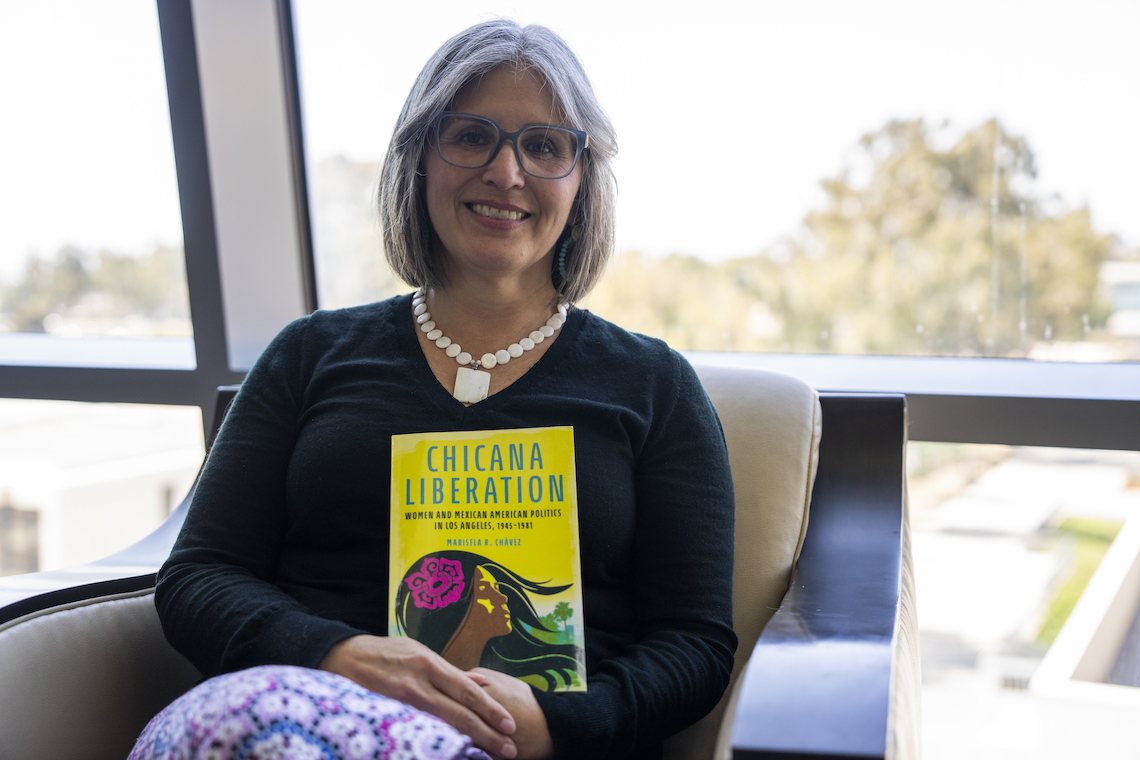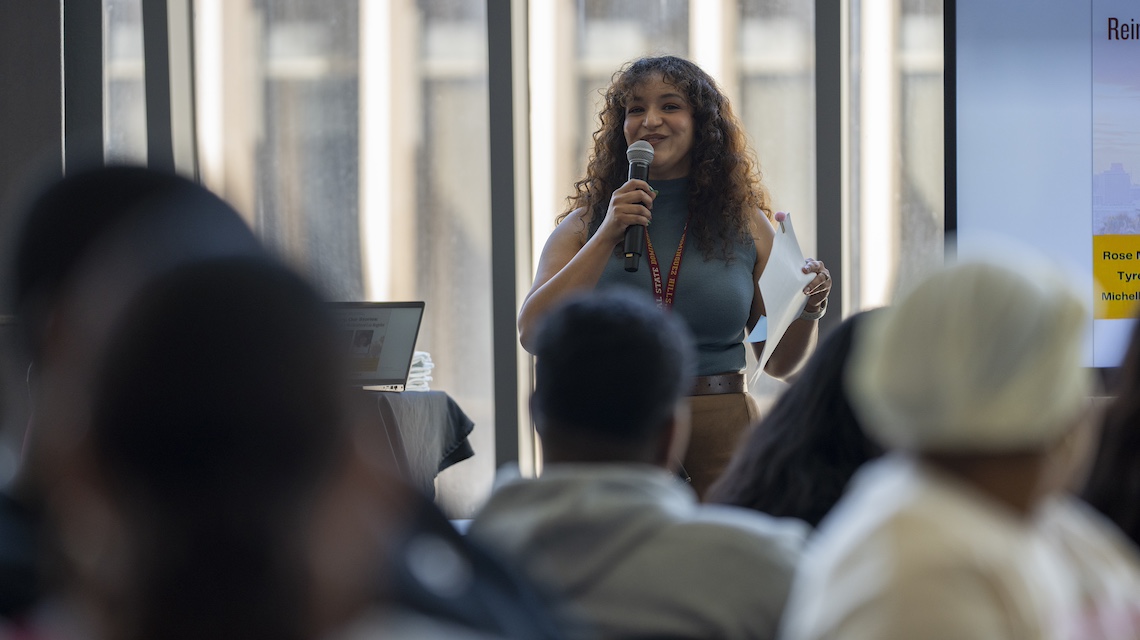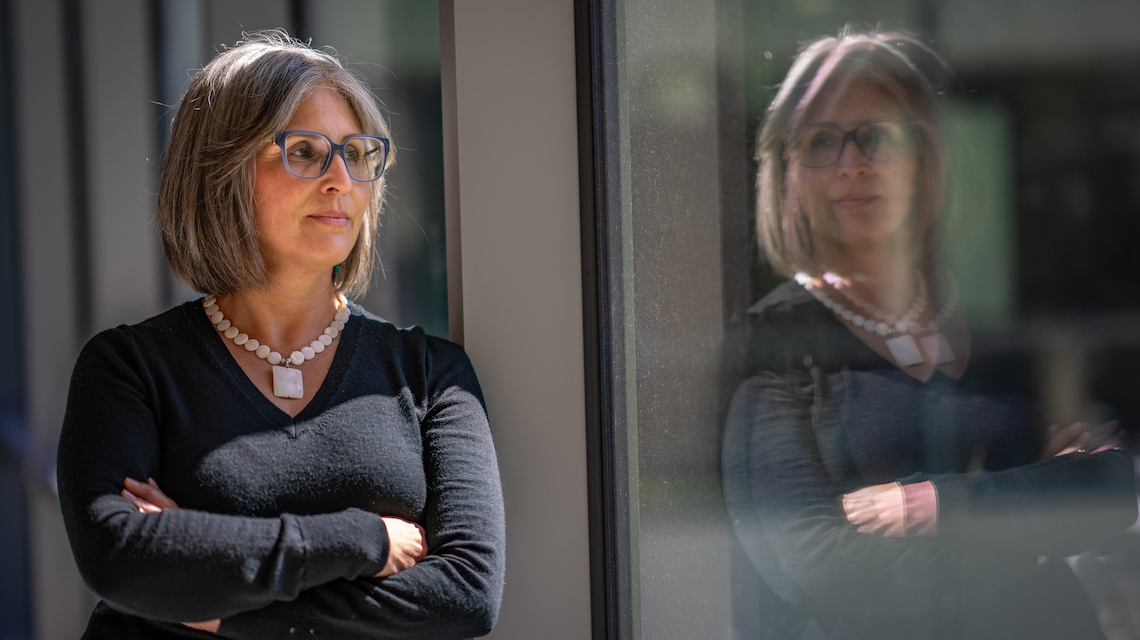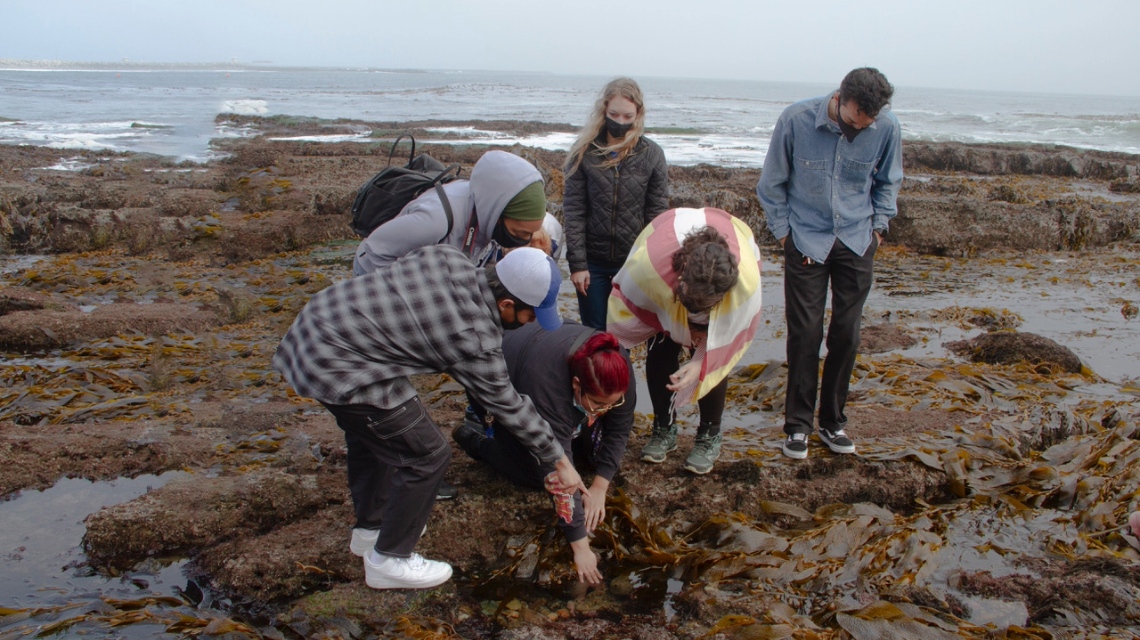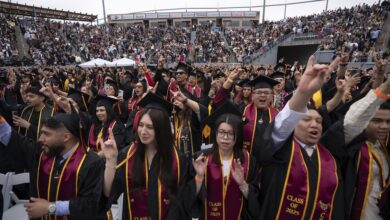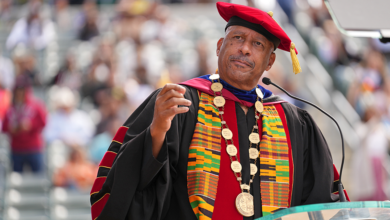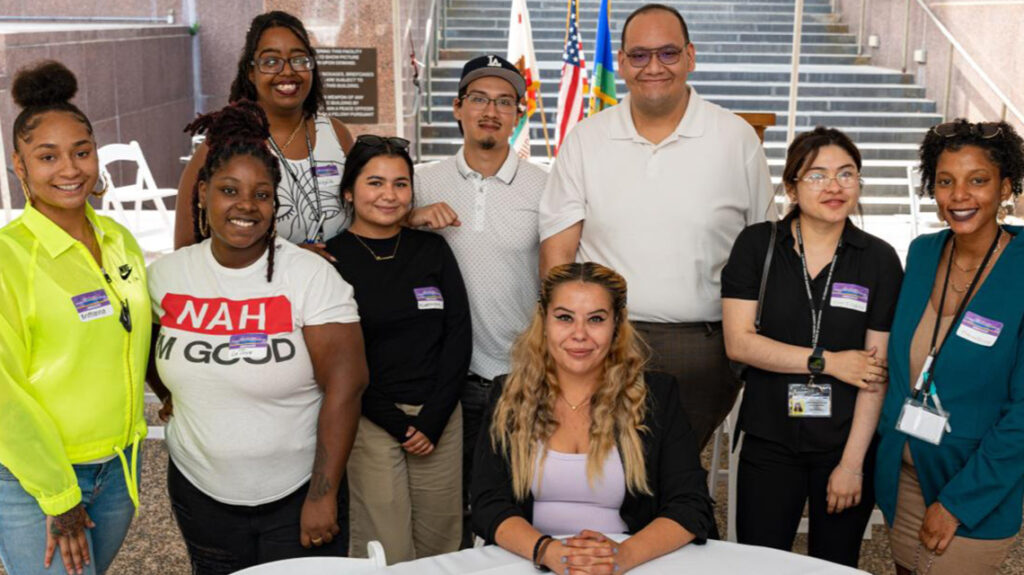
At 23, CSUDH junior Ricardo Ortega Martinez Jr. is already a veteran in California politics. “My advocacy and community organizing started at the age of 17,” says Martinez, a political science major whose early experience with foster care growing up in Huntington Park helped shape the focus of his current advocacy work.
Martinez serves as youth commissioner for California’s 5th District, which encompasses much of Antelope Valley and northeastern Los Angeles County. The Youth Commission was established in September 2021 by the Board of Supervisors to promote involvement by young people in public policy decisions.
Youth commission members have direct experience with foster care, juvenile justice, homelessness, and other social service systems. This is critical for finding more equitable ways to serve the needs of system-impacted youth, Martinez says.
“The county has highly educated, capable people heading social service departments, but they’ve never been a part of the system they work in,” says Martinez. “How can you create long-lasting and positive change when you have never experienced what you’re trying to implement?”
Since the start of his term as a youth commissioner, Martinez has focused on evaluating service systems in his district. His elevation to co-chair of the commission in elections held last month will now expand his portfolio countywide. It’s the kind of work that first drew him to public service as a teenager.
In his sophomore year at Firebaugh High School in Lynwood, Martinez was selected by then-State Senator Ricardo Lara (CA-33) for the district’s Young Senators Program. The eight-month program gives young people the chance to explore potential professional and educational opportunities to nurture the next generation of state leaders.
“As a former system-impacted youth, I had a specific area that I wanted to focus on. That helped me to make the right choices to reach my goals,” recalls Martinez. One of those choices included working with California Youth Connection, an organization that empowers local communities to improve the state’s foster care system through changes in legislation, policy, and practice.
“I worked on AB-2247 with Assemblyman Mike Gipson (CA-65), who authored the bill. This legislation required 14 days prior notice of a change in placement,” Martinez says. “It fundamentally improved the structures in place for determining how and under what circumstances young people could be removed from placement.”
Martinez continues to partner with Gipson on legislative matters as a member of the assemblyman’s Immigration Commission, where he advises on how best to meet the needs of the South Bay’s undocumented population. Gipson said Martinez’ keen interest in public policy has made him an effective voice for some of California’s most vulnerable residents.
“Ricardo Martinez has exhibited a strong interest in his community and the issues surrounding immigration,” says Gipson. “He has contributed greatly to my immigration Commission. He has a passion for fighting injustice and uplifting disenfranchised populations.”
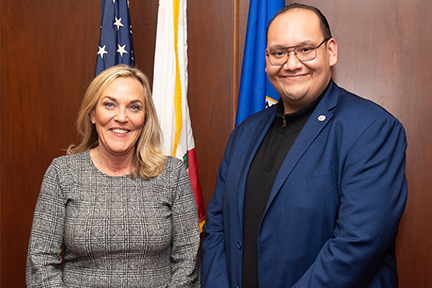
Martinez’ passion both for politics and advocacy struck a chord with Shari Berkowitz, associate professor of Criminal Justice Administration at CSUDH. She taught Martinez last fall in her online CJA 444 Juvenile Justice Process course, which Martinez took to help him better understand the issues facing young people in the juvenile justice system.
“He has an impressive background. Considering he’s so young and had a tough start, I think he’s very inspiring for our campus.” Berkowitz adds that his commitment to advocacy extends to his fellow Toros. “He’s involved in the Toro Guardian Scholars program, where he brings his knowledge and compassion to assist other system-impacted youth enrolled at CSUDH.”
Martinez says that despite his expanding role as co-chair, he remains committed to serving specific needs in the Antelope Valley. This month he helped launch the Peer Specialist Program to train system-impacted youth for employment in the human services sector.
In partnership with America Job Centers of California, the program will begin with a cohort of 10 individuals between the ages of 18 and 24 who have lived experience in social service systems and can commit to working in mental health services.
“We’re going to teach them everything,” says Martinez. “Participants will be placed on job sites with mental health providers, or with organizations that coordinate specific events related to mental health. They will see what works and doesn’t work from both sides.”
Martinez says a primary goal for the training is to get participants to commit to remaining in the Antelope Valley area once they find a job. “These kinds of opportunities have been missing in this area.”
Martinez says his future in politics might include a run for his local school board and eventually the county’s Board of Supervisors. Whatever role he ultimately chooses, he will continue to focus on the needs of at-risk and system-impacted youth.
“I was in and out of foster care and group homes as a child. Now I have a career in public service, a new home in Quartz Hills, and I’ll soon by a first-generation college graduate,” says Martinez. “I’ve been able to do all these things despite my early hardships. I want all young people to know that they can do these things as well.”

